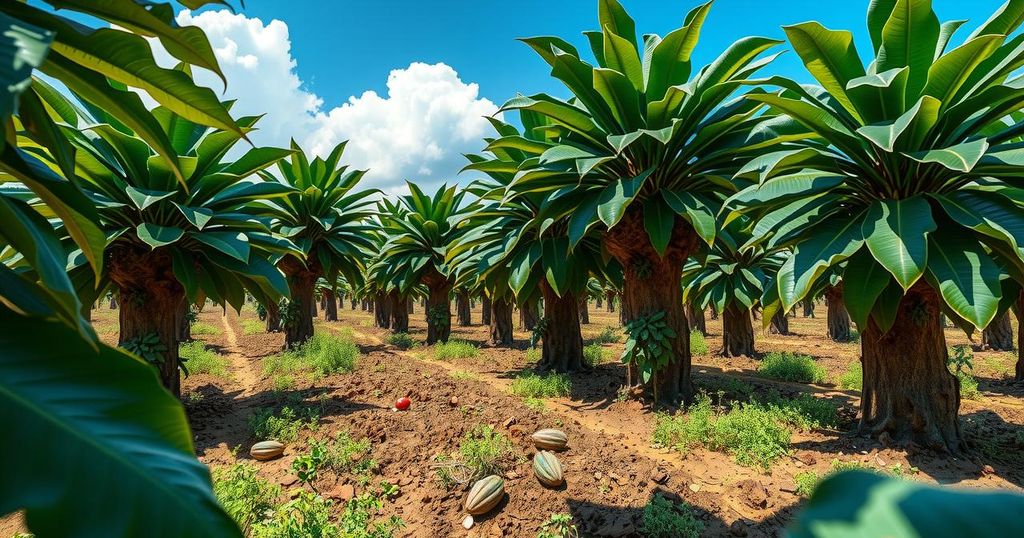Ghana’s Cocoa Sector Crisis: A Call for Urgent Reforms
Ghana’s Finance Minister, Dr. Cassiel Ato Forson, presented a dire outlook for the cocoa sector, detailing a 32 billion Cedis debt for COCOBOD and nearly a 50% decline in production. He warned of substantial revenue losses and emphasized the need for reforms to safeguard the future of the cocoa economy amid challenges like market price disparities and smuggling.
On March 11, Ghana’s Finance Minister, Dr. Cassiel Ato Forson, presented the 2025 Budget to Parliament, themed “Resetting Ghana for the economy we want.” He remarked on the significant fiscal risks plaguing the cocoa sector, revealing that COCOBOD’s outstanding debt amounts to 32 billion Cedis and indicating a deeper crisis.
Dr. Ato Forson expressed concern for the cocoa sector, traditionally pivotal to the Ghanaian economy, now incapacitated by gross mismanagement over recent years despite the world market offering record-high cocoa prices. He noted a stark decline in cocoa production, almost 50% over three years, and COCOBOD’s inability to fulfill its contractual obligations for the 2023/2024 crop season, translating into a shortfall of 330,000 tonnes.
The minister explained that pre-sold cocoa contracts at significantly lower prices, compared to current market values, have led to revenue losses approximating US$840 million for COCOBOD, adversely impacting local farmers. He highlighted further financial challenges within the sector such as unsustainable debt levels and quasi-fiscal expenditures related to cocoa infrastructure, which are not central to its operations.
COCOBOD holds considerable financial obligations, with a GHC32 billion debt, of which GHC11.92 billion needs to be repaid in 2025. Moreover, cocoa-related contracts amounted to GHC21 billion (US$1.3 billion) but only GHC4.4 billion has been accounted for by COCOBOD. The sector also struggles with risks from market price disparities and smuggling, which stem from payment gaps to farmers incentivizing illegal trade.
In response to these daunting challenges, Dr. Ato Forson underscored the urgency for reforms necessary to mitigate fiscal risks and safeguard the cocoa sector’s viability moving forward.
In summary, Ghana’s cocoa sector, a crucial pillar of its agricultural economy, is currently facing a crisis due to mismanagement, significant debt, and declining production. The government recognizes the need for urgent reforms to stabilize this vital industry and protect the livelihoods of farmers. Addressing these fiscal risks is imperative for the future sustainability of Ghana’s cocoa economy.
Original Source: www.gbcghanaonline.com




Post Comment